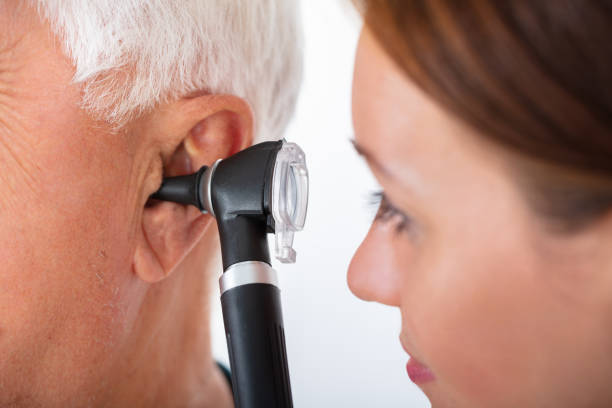The human ear is usually well-protected against ear infections. While too much earwax can be a problem, the substance is a very effective barrier to keep out foreign objects and even living specimens that might otherwise cause all kinds of damage and disease.
However, this is not an impenetrable barrier and there are various ways in which an infection may happen. That is when you should contact us to get ear infection treatment.
It helps a lot if you have at least some knowledge of the different kinds of ear infection, which have varied causes and can affect different parts of the year. By recognising symptoms, you can seek treatment sooner and therefore get the issue dealt with faster, avoiding pain and the potential for severe damage.
Common symptoms suggesting you may have an ear infection include pain or itching in the ear, discharge from the ear, lethargy, nausea and a high temperature. They are particularly common in children, but adults can still suffer from them.
Middle ear infections are usually suffered by children and are caused by viruses like colds or flu, while for adults the two main kinds of infection are middle and outer ear infections.
A middle ear infection can be caught by adults or children and is caused by bacteria or a virus and if untreated can lead to severe conditions like Labyrinthitis. Outer ear infections are mainly suffered by adults over 45 and involve irritation of the ear canal, often caused by things like earplugs, eczema, or water ingress.
There are some things people can do themselves to treat infections, such as taking Paracetamol or Ibuprofen and wiping away any discharge, while it is important to avoid using cotton wool buds to try to remove anything from the ear. You should also be careful to avoid water or shampoo getting in there, as this can make things worse.
While the majority of infections clear up within three days, some do not – and that is when you should be seeking medical attention. A skilled practitioner can give you the treatment you need, which can range from antibiotics for various conditions to steroids or anti-fungal treatments for outer ear infections.
If you frequently use earplugs or other items that go inside the ear, or have a medical condition like eczema, you may also be given useful advice to help reduce the danger of a recurrent infection. After all, the last thing you want is to have to keep on going back for more treatment.
As well as some common viruses, Covid-19 has also been associated with ear infections. In 2022, Medical News Today highlighted the results of multiple studies that showed the virus was likely to cause infections.
However, while Covid-19 was a novel virus when humans first encountered it, it has essentially the same impact when it comes to causing ear infections as other viruses, causing inflammation and the build-up of fluid.
Paradoxically, at the height of the pandemic children were less likely to suffer ear infections, as lockdown meant they were less exposed to other viruses.



